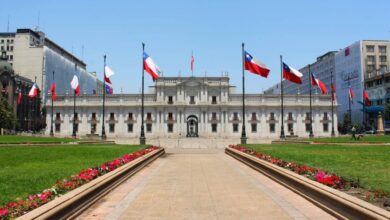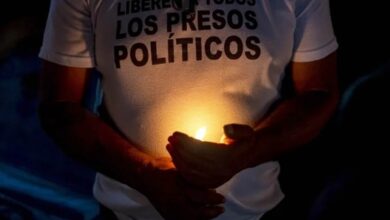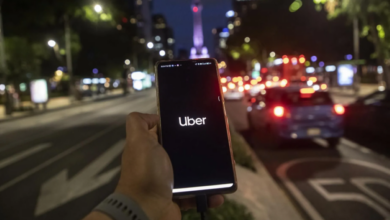Why do Chileans continue to protest?
After more than a month of protests, Chileans remain in the streets despite having managed to get the government to consolidate a new Constitution .

Demonstrations in Chile. / Photo: Getty Images
LatinAmerican Post | Juliana Suárez
Listen to this article
Leer en español: ¿Por qué siguen protestando los chilenos?
The nonconformities of Chileans have not stopped. The rise of social protest has left Chileans wanting to demand from the government more of the answers they are receiving.
What had begun with the rise in the price of the metro in Chile, ended up unleashing a wave of disagreements that now seems not to end. To this disagreement was added the lack of guarantees in the pension system and the impossibility of access to health, as well as the salary of the parliamentarians was a strong reason for protest.
As a first result of the demonstrations, Piñera changed part of his cabinet, replacing the heads of the ministries that had more to do with the demands of the population, such as the Minister of Interior and Public Security and the Minister of Finance. Other instantaneous measures were to curb the decree that raised the price to the meter, the initial cause of the protests.
Read also: The new cabinet in Chile
However, this did not seem to make the people happy, who every day that pass are still asking for more guarantees. Protests and dozens of petitions ended in cornering the government while demanding a change of Constitution. The current Chilean Constitution, which exists since 1980, was created during the era of Augusto Pinochet, so the criticism is that it was in favor of a military dictatorial regime, and not a democracy focused on the Human Rights of Chileans. This, although it has had reforms that have included plurality and eliminated some aspects of military blade, does not represent the people of Chile.
Five years ago, in 2015, the then president of Chile, Michelle Bachelet, had announced that she would start the path to change the Constitution. At the end of her term, there was no further progress and the issue, although it was on the table, never developed.
Given this need, President Sebastián Piñera informed days ago that he would meet to open the possibility of creating a new Political Constitution available to all citizens, always focusing on the fact that the country must remain united and consolidate the peace that, due to the protests, had been affected. This agreement was carried out by both the government and political parties with parliamentary representation, including the opposition.
Following this, the government said that in April 2020 a citizen consultation will be held in which Chileans can vote if they are in favor or against a new Constitution. After this, a Constitutional Assembly or a Constitutional Joint Convention will be formed (depending on the mechanism chosen) with diverse representation, both in the political and in the civil sphere, and then a referendum would be convened to approve said Constitution.
The president has also called for more action by all branches of power to be able to guarantee citizens prompt responses to their disagreements.
Tenemos q actuar con mayor urgencia.Muchos otros proyectos esperan en el congreso para dar + seguridad a los chilenos. Reitero llamado a otros Poderes del Estado, a los sectores políticos y sociedad civil para colaborar y trabajar juntos en un #AcuerdoPorLaPaz contra la violencia
— Sebastian Piñera (@sebastianpinera) November 24, 2019
The protests
Although Piñera's government seems to be actively and humbly responding to the requests of the Chileans, the protests uncovered a wave of nonconformity that turned into an unstoppable snowball. The protests, which have been attended by more than one million people, have become scenes of violence, both by some protesters and the Public Force.
Curfew and more than 20 deaths are other lags of the social protest that broke out on October 18. After more than a month of taking to the streets, the last victim of serious gravity registered is a woman who became blind on Wednesday, November 27 after receiving a tear gas impact launched by the Public Force. She is just a symbol of the riots that have broken out in the capital and other cities.
The military took to the streets since October 19, reminding Chileans of a bygone era, when the state of siege kept the Armed Forces in the streets raiding during the Pinochet military dictatorship. In response, before shushing, the Chileans have taken to the streets with more strength, which has led to violent riots, affected monuments, damaged premises, and massive looting.
According to El País, more than 17,000 people had been arrested until November 18, of which around one thousand are still in pretrial detention. Regarding the abuse of the Public Force, President Sebastián Piñera himself accepted that there has been excessive use of force. "The National Institute of Human Rights has already brought to court 346 cases, of which 246 were for torture and cruel treatment and 58 for sexual violence," said the Spanish media.
Anoche Chile vivió una nueva jornada de violencia, q causó temor y angustia a la inmensa mayoría de chilenos. Como democracia, tenemos el derecho y obligación de defendernos de enemigos q usan violencia en contra de la sociedad. ¡Es momento de decir BASTA! https://t.co/3DeLdQmvqP pic.twitter.com/TDOcAsnhFW
— Sebastian Piñera (@sebastianpinera) November 27, 2019
Organizations such as Human Rights Watch and Amnesty International have interceded in denouncing abuses of authority and violation of human rights during the violent days. Given this, HRW has communicated the urgent need for police forces to have a restructuring, since the lack of protocols when acting is evident.
Read also: This is how four Latin American presidents reacted to the protests
Despite the fact that today the military is no longer on the streets of cities, President Piñera has considered doing it again, taking into account the violent outcome of many of the protests and public goods and facilities that have been affected.
Citizens who continue to take to the streets today and have prevented the return to daily life in the country, express their dissatisfaction with the abuses of the Public Force. Piñera's acknowledgment of responsibility and apologies seem to have no effect on citizens. Much less after he announced that he would send a bill that would allow the military to collaborate with the police in these cases, without decreeing a state of exception.
"As long as we do not have peace, nor can we guarantee public order, we will not be able to move forward on a firm footing," said the President. This would go against the calls for peace he has made before and created an atmosphere of relief that Chileans do not intend to endure. Thus, the discourse of peace and union has been overshadowed by one of repression and security. Although the president announced that this project does not affect the freedoms or rights of citizens, protesters did not like the idea.
Proyecto de Ley para que FFAA colaboren en protección de infraestructura crítica permite, sin restringir libertades o derechos de ciudadanos, resguardar hospitales, sistemas de telecomunicaciones, líneas de transmisión, estaciones eléctricas, plantas de agua potable, entre otros pic.twitter.com/JvulRNe9EJ
— Sebastian Piñera (@sebastianpinera) November 26, 2019





